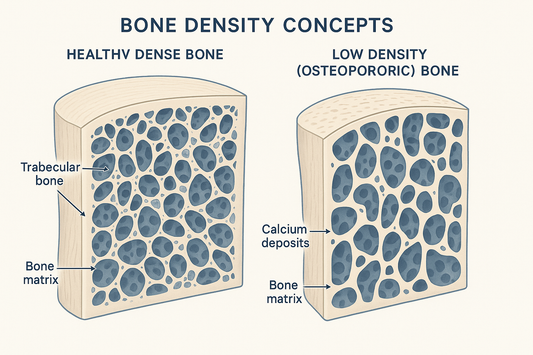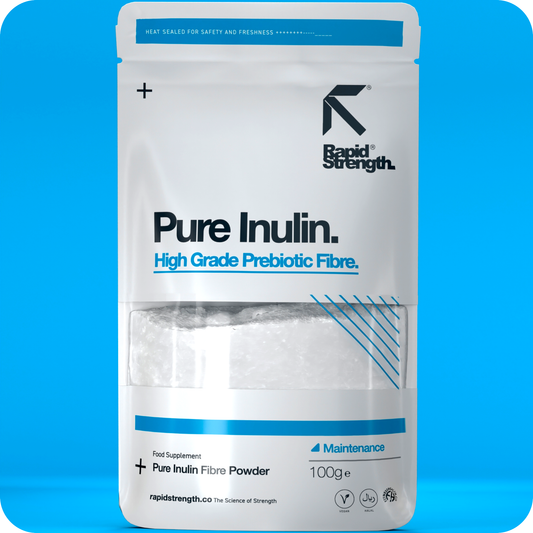Creatine monohydrate is a widely misunderstood supplement that is surrounded by myths and misconceptions. Many people believe that it is only used by bodybuilders and athletes to enhance their performance, while others think it is harmful or unnecessary. However, the truth is that creatine monohydrate is a scientifically proven and safe supplement that offers a variety of benefits for individuals of all fitness levels. In this article, we will debunk the myths surrounding creatine monohydrate and delve into the scientific evidence behind its benefits. Whether you are an athlete looking to improve your performance or simply someone interested in optimizing your health and fitness, this comprehensive guide will help you understand the truth about creatine monohydrate and its potential positive impact on your body.
What is creatine monohydrate and how does it work?
Creatine monohydrate is a popular supplement among athletes and fitness enthusiasts, but what exactly is it and how does it work? Creatine monohydrate is a naturally occurring compound found in small amounts in meat and fish. It is also produced by the body in the liver, kidneys, and pancreas. When ingested as a supplement, creatine monohydrate is rapidly absorbed into the muscles, where it is converted into creatine phosphate. This phosphate molecule then combines with adenosine diphosphate (ADP) to produce adenosine triphosphate (ATP), which is the primary source of energy for muscle contractions. In simpler terms, creatine monohydrate helps to replenish ATP stores in the muscles, allowing for increased energy production during intense physical activity. This, in turn, can lead to improvements in strength, power, and overall athletic performance. Contrary to some misconceptions, creatine monohydrate is not a steroid or a dangerous substance. It is a naturally occurring compound that has been extensively researched and proven safe for consumption when used as directed.
Debunking common myths about creatine monohydrate
Creatine monohydrate is a popular supplement in the fitness world, known for its ability to enhance athletic performance and support muscle growth. However, there are still many misconceptions and myths surrounding this compound. It's time to debunk these myths and uncover the scientific truth behind creatine monohydrate.
Myth #1: Creatine monohydrate is a steroid. This is a common misconception, but it couldn't be further from the truth. Creatine monohydrate is a naturally occurring compound found in our bodies and in various food sources such as meat and fish. It is not a synthetic substance like steroids. Supplementing with creatine monohydrate simply increases the levels of this naturally occurring compound in the body.
Myth #2: Creatine monohydrate is only for bodybuilders. While it is true that bodybuilders often use creatine monohydrate to support muscle growth and strength gains, it is not exclusively for them. Creatine monohydrate can benefit athletes of all levels and individuals looking to improve their performance in any physical activity. It has been extensively studied and proven to enhance performance in high-intensity, short-duration activities like weightlifting, sprinting, and jumping.
Myth #3: Creatine monohydrate is harmful to the kidneys. This is a myth that has been circulating for years, causing unnecessary concern among individuals considering creatine supplementation. Numerous scientific studies have been conducted, and the overwhelming consensus is that creatine monohydrate is safe for the kidneys when used as directed. In fact, for healthy individuals, creatine supplementation has shown no adverse effects on kidney function.
Myth #4: Creatine monohydrate causes bloating and water retention. Some individuals believe that creatine monohydrate leads to bloating and water retention, giving a puffy or swollen appearance. However, this is not entirely accurate. While it is true that creatine can cause an initial increase in water weight due to its ability to draw water into muscle cells, this is not the same as bloating or excess body fat. The water retention is intracellular, meaning it stays within the muscle cells, contributing to improved hydration and muscle fullness. It's important to separate fact from fiction when it comes to creatine monohydrate. By debunking these common myths, we can appreciate the scientific evidence supporting its benefits and make informed decisions about its use as a safe and effective performance-enhancing supplement.
Scientifically proven benefits of creatine monohydrate
Creatine monohydrate has long been a topic of debate and confusion among fitness enthusiasts and athletes. However, numerous scientific studies have shed light on the true benefits of this supplement. Let's delve into the scientifically proven advantages of creatine monohydrate.
1. Improved Strength and Power: Creatine monohydrate has been consistently shown to enhance strength and power performance during high-intensity, short-duration activities. It achieves this by increasing the availability of phosphocreatine, a molecule necessary for the rapid regeneration of adenosine triphosphate (ATP) – the body's primary source of energy.
2. Increased Muscle Mass: Creatine monohydrate has been extensively studied for its ability to promote muscle growth. It facilitates the synthesis of protein, leading to increased muscle fiber size and overall muscle mass. This, in turn, can have a positive impact on athletic performance and aesthetics.
3. Enhanced Exercise Capacity: By improving the body's energy production and buffering capacity, creatine monohydrate allows individuals to exercise at a higher intensity and for longer durations. This is particularly beneficial for activities that demand repeated bouts of intense effort, such as weightlifting, sprinting, and high-intensity interval training (HIIT).
4. Accelerated Recovery: Creatine monohydrate aids in the replenishment of ATP stores following intense exercise, allowing for faster recovery between bouts of physical activity. This can be advantageous for athletes who engage in multiple training sessions or competitions within a short timeframe.
5. Cognitive Benefits: Emerging research suggests that creatine monohydrate may have cognitive-enhancing properties, particularly in tasks that require short-term memory, processing speed, and mental fatigue resistance. It appears to positively influence brain energy metabolism, benefiting tasks such as intelligence tests, and memory tasks, and even reducing mental fatigue during sleep deprivation. It is worth noting that creatine monohydrate is one of the most well-researched supplements, with a substantial body of evidence supporting its safety and efficacy. However, as with any supplement, it is essential to consult with a healthcare professional before incorporating it into your routine, to ensure it aligns with your individual circumstances and goals.
How to properly use creatine monohydrate for optimal results
Proper usage of creatine monohydrate is crucial to maximize its benefits and achieve optimal results. While there are many myths and misconceptions floating around, understanding the science behind this supplement will help you make informed decisions and get the most out of your fitness routine. First and foremost, it is important to consult with a healthcare professional or a certified nutritionist before starting any new supplement regimen. They will assess your individual needs, health status, and guide you on the appropriate dosage for your body. To begin, it is recommended to go through a loading phase for the first few days of creatine supplementation. During this phase, you'll typically take a higher dose of creatine to saturate your muscles with this important compound. This loading phase usually lasts for 5-7 days, and the common dosage ranges around 20-25 grams per day, divided into several smaller doses. Following the loading phase, you can transition into the maintenance phase, where the daily dosage is reduced to a more moderate level. For most individuals, a daily dosage of 3-5 grams is sufficient to maintain optimal creatine levels in the body. Timing is also a crucial factor when it comes to creatine supplementation. It is recommended to consume creatine monohydrate before or after your workout, as it can help enhance workout performance and promote muscle recovery. However, spreading your creatine intake throughout the day is also effective, ensuring a consistent supply of creatine to your muscles. Remember to stay hydrated while using creatine monohydrate, as it can increase the water content in your muscles. Aim to drink plenty of water throughout the day to support proper hydration and overall well-being. Consistency is key with creatine supplementation. To experience its full benefits, it is important to use it consistently over an extended period. It may take a few weeks to notice significant improvements in strength, power, and muscle mass, so patience is essential. Lastly, it is crucial to note that creatine monohydrate is a supplement, not a magic potion. While it has been extensively studied and proven to be safe for most individuals, it is not a substitute for a well-balanced diet and a solid training routine. To truly maximize your results, combine creatine supplementation with proper nutrition, regular exercise, and adequate rest. By following these guidelines and understanding the scientific benefits of creatine monohydrate, you can harness its power to support your fitness goals and unlock your full potential in the gym.








